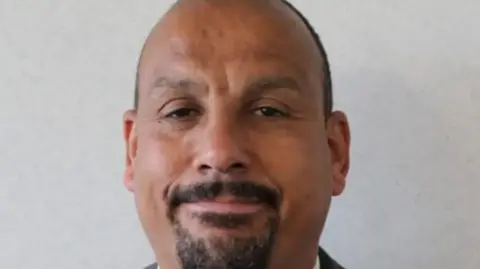**Councillor’s Rally Comments Spark Controversy in Court Proceedings**
A significant court case is currently underway that involves Ricky Jones, a 58-year-old Labour councillor from Dartford. Jones is facing trial at the Snaresbrook Crown Court for his inflammatory remarks made during an anti-racism protest in Walthamstow, which took place on August 7 of the previous year. The comments he made, which included a call for far-right protesters’ “throats to be cut,” have raised serious concerns and led to accusations that he encouraged violent behavior.
During the trial, court records reveal that Mr. Jones described the demonstrators at the rally as “disgusting Nazi fascists.” These comments were caught on video and were made while addressing a substantial crowd that Jones estimated to be “tens of thousands” strong. He later expressed to the police that his remarks were “ill-advised” and claimed they were not intended to be taken literally. Despite this, he firmly denies any intention of inciting violence.
Mr. Jones, who was also a full-time official with the Transport Salaried Staffs Association (TSSA) at the time, shared that he deeply regretted the wording of his comments. Support for Mr. Jones came from Kevin Courtney, a retired teacher and a long-time friend of the councillor, who testified that he was taken aback by Jones’ statements. Courtney elaborated, stating that he had never heard him express anything similar in the past, emphasizing that the comments were “completely out of character.”
The retired teacher also clarified that he had previously participated in rallies with Jones, and the atmosphere during those events was predominantly peaceful. When prompted by defense barrister Hossein Zahir KC if he had ever witnessed Mr. Jones advocating violence, Courtney responded with a firm “No,” adding that it was shocking to see the video depicting those words being spoken.
Further testimony from Jones clarified that his comments specifically related to an incident involving a ‘National Front Rights for Whites’ sticker that was found on a train, purportedly with a hidden razor blade. He asserted that images of these stickers received a day prior to the rally had caused him to feel “very emotional and very upset.” Jones contended that the attendees at the Walthamstow rally would understand the context of his remarks and recognized that they were a reference to this particular incident.
In the lead-up to the protest, Mr. Jones had been advised against attending due to the unrest that had spiraled from counter-protests related to a particularly sensitive issue—the tragic murder of three children in Southport. However, Jones felt a sense of obligation to take part in the counter-protest against the far-right protesters he deemed unjustifiable. His arrest occurred a day after he made the incendiary remarks.
As the trial continues, the key question remains whether Jones genuinely incited violence against the far-right protesters or whether his outburst was merely an emotional reaction to a distressing situation. The proceeding is closely monitored as it touches on free speech and the responsibilities of public figures during politically charged events.
In summary, Mr. Jones’ statement during the August rally has sparked heated discussions regarding accountability and the language used during protests. The ongoing trial at the Snaresbrook Crown Court reflects broader societal issues regarding expression, the nature of protests, and how political figures navigate the complexities inherent in their public roles.











